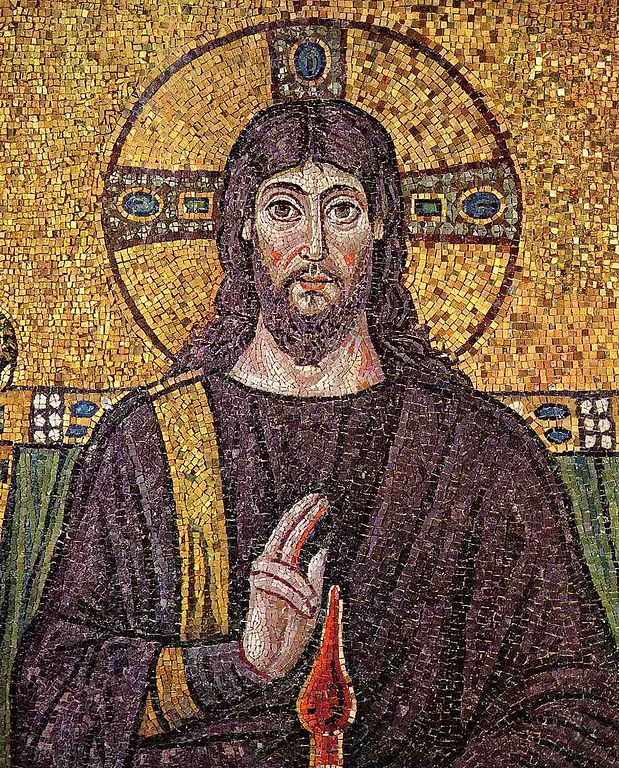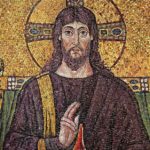Costly Grace
Contributed By: Rev. Wendy Depew Partelow
(Download Reflection)
As I sit here in the wee hours of the morning, shortly after Christmas, the season that has become known for gift giving and receiving, I ponder these words by Macrina Wiederkehr (A Tree Full of Angels)* found in my “Readings for Reflection”:
“The Gift of God is the Divine Indwelling. It comes quietly into your frailty at baptism. You become a tabernacle for the Source of Life. When you come to understand this old yet often forgotten truth, you will know what is meant by the words heaven on earth…You, frail earth creature, having given your frailty over to God, have created a place of splendor within the depths of your being…It is costly grace.”
We are coming upon a New Year – 2022 – Wow! As I think about this, as one who has spent many years in the Church, I think about the Christian Year as we frail earth creatures lay it out so that we remember at the very least the highlights of Jesus’ life here on earth: the birth, the coming of the wisemen, the baptism, the calling of the disciples, the sending out, and then in only two short months after the glorious celebration of his birth, we are reminded of his faithfulness and purpose, the miracles and healing, the preaching and teaching, his struggles and his passion, his suffering and his death. And then we experience the most glorious high in the Christian Year, Resurrection Day!
But our New Year begins on the Sunday after Thanksgiving, with the Advent of the Christmas Season, the waiting for the Christ child to be born. And so, our New Year begins with waiting. Waiting for the Christ child to be born, waiting for the Gift of God to be revealed, waiting for the Divine Indwelling of the Holy Spirit to come quietly into our frail human lives.

And so what does that mean to wait for this Divine Indwelling of God into the world? And what does it mean to experience this Divine Indwelling that comes to us quietly in our frailty as the earthly creatures that we are?
And what is meant by baptism? Is it merely the dunking into or sprinkling about of water that symbolizes the primordial waters at earth’s birth? Or is baptism something that comes to us quietly – or in a rush – as God directs? God touches us in our frailty, in our vulnerability. God speaks to us in the frailty of our lives, we hear the still small voice – as did Elijah – in the sheer silence of our hearts. (1 Kings 19:13)
It can come all in a rush at baptism, or it can come quietly as we become aware of our own frailty as created beings. It comes to us when we least expect it, and it comes in the fullness of time – but it does not come in our time. We do not direct it, we are not in control of it. It comes when our hearts are ready, when we admit our frailty, our vulnerability, our powerlessness over those things that truly bind us: the want that drives us to do whatever it takes to obtain it. When that want is temporal, when the wants we can’t live without include more and more possessions, more and more money, more and more power over other people, then that Divine Indwelling shrinks to accommodate these other things.
But when our wants include seeking more and more God’s will for our lives, when they include deciding to treat all those with whom we come into contact – especially those despised in the world’s eyes – with the dignity and respect they deserve as the frail earth creatures that they are, then we realize that we are included in those frail earth creatures that others may despise. Only then, only when we realize our own frailty, can the Divine Indwelling find a home in us.
Baptism may very well take place with dunking and/or sprinkling, but the true baptism of the heart takes place when we admit our frailty as created beings dependent on our Creator God.
So why do we say it is costly? Because when the going gets tough, and it does for all of us, we can choose the costly way and faithfully stand beside our God and trust in God’s loving faithfulness, or we can take matters into our own hands and use scripture to justify our actions. Both ways can be considered Christian, but there is only one way that leads to heaven on earth. You choose…
*A Guide to Prayer for All God’s People, Shawchuck and Job, p. 53
Image: https://commons.wikimedia.org/wiki/File:Christus_Ravenna_Mosaic.jpg

